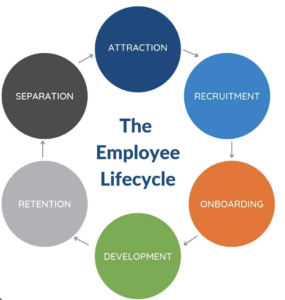From 26th October 2024, businesses will have to fulfil a new requirement to prevent sexual harassment in the workplace. This is due to the introduction of the Worker Protection (Amendment of Equality Act 2010) Act 2023. The EHRC guidance suggests this preventative duty extends to harassment of this kind by a third-party. This includes customers, clients, suppliers, visitors, members of the public – anyone who interacts with your staff at work. Essentially, employers potentially have vicarious liability for the acts of colleagues and third-parties in the workplace. That said the situation with regard to third parties is still relatively unclear from a legal perspective. The new Labour government have indicated that they intend to strengthen this new protection, so employers would do well to be on the front foot now, as there may be more to come.
What are employers expected to do?
Employers are expected to take ‘reasonable steps’ to prevent sexual harassment at work, although there is no definition of what those reasonable steps might be. The expectation is that they include actions that are practical, proportionate and tailored to the specific workplace. If employers can demonstrate that they took these reasonable steps, they might be able to successfully defend a claim of sexual harassment at work at a tribunal. Failure to do so could not only result in an uncapped compensation payment to the claimant, but also up to 25% uplift on compensation if an employer has breached the specific duty to prevent sexual harassment.
10 Reasonable steps to consider
- Ensure your anti-harassment policies are up to date and reflect the new requirements. Make it clear what the Company’s expectations about behaviour in the workplace are. Consider creating a specific anti-sexual harassment policy and ensure this is regularly communicated to all staff, and third-parties.
- Ensure that the ‘workplace’ is correctly defined in line with the Equality Act. This extends to workplace social and off-site events, and interactions (both in person, in writing and on social media) that are connected to work.
- Conduct a risk assessment of your workplace to identify where there is a risk of harassment. Ensure you include third-party risk, review the number of complaints received and the outcomes of those investigations.
- Conduct regular anonymous staff surveys to get feedback on workplace culture including this specific area. Or create an anonymous reporting system through the use of QR codes, publicised in discrete areas.
- Ensure the process for raising a complaint is straightforward, that it’s clearly explained and easy to access.
- Put up notices in staff areas, and anywhere your staff come in to contact with third parties.
- Invest in up-to-date regular mandatory anti-harassment training. Use this to educate employees about acceptable behaviour, and what to do if they witness sexual harassment.
- Invest in up-to-date regular mandatory manager training. Use this to educate your people managers about how to address issues and spot the early signs of harassment.
- Ensure those who are responsible for investigating any complaints are trained and capable of doing so.
- Ensure the senior team are aligned in taking a zero-tolerance approach to harassment. Make sure they are committed to creating and maintaining a culture that values diversity, inclusion and respect.
Consequences
If your employees do experience sexual harassment in the workplace, there are a number of different negative consequences.
As well as putting the business at risk of an employment tribunal claim (which is both costly and time-consuming), the consequences of sexual harassment in the ‘post #metoo era’ extend wider than this:
- Your reputation as a business may come under scrutiny. This may lead to potential lost business opportunities if investors, stakeholders, or potential customers or clients decide they don’t want to be associated with a business that has a problem with sexual harassment. Publicly listed companies have lost share value when issues of sexual harassment have been present.
- Your reputation as an employer will be detrimentally affected – not many people would seek to be employed by a company that has issues with sexual harassment in the workplace, and those already working for you will undoubtedly look for other opportunities. You are likely to find it hard to find and hang on to talent.
- The mental health of your employees is likely to be detrimentally affected, affecting productivity, absence and performance.
- The EHRC also have the ability to investigate and enforce the new requirements if an employer fails to comply with the requirement to prevent sexual harassment in the workplace. This process would also be extremely involved and time-consuming and further damage your reputation.
This change takes effect on 26th October 2024, which means you need to have the ‘reasonable steps’ in place by this date in order to avoid a breach of the new duty to prevent sexual harassment in the workplace.
If you are concerned about what these changes mean for your business, Helpful HR can help, so get in touch.


Recent Comments